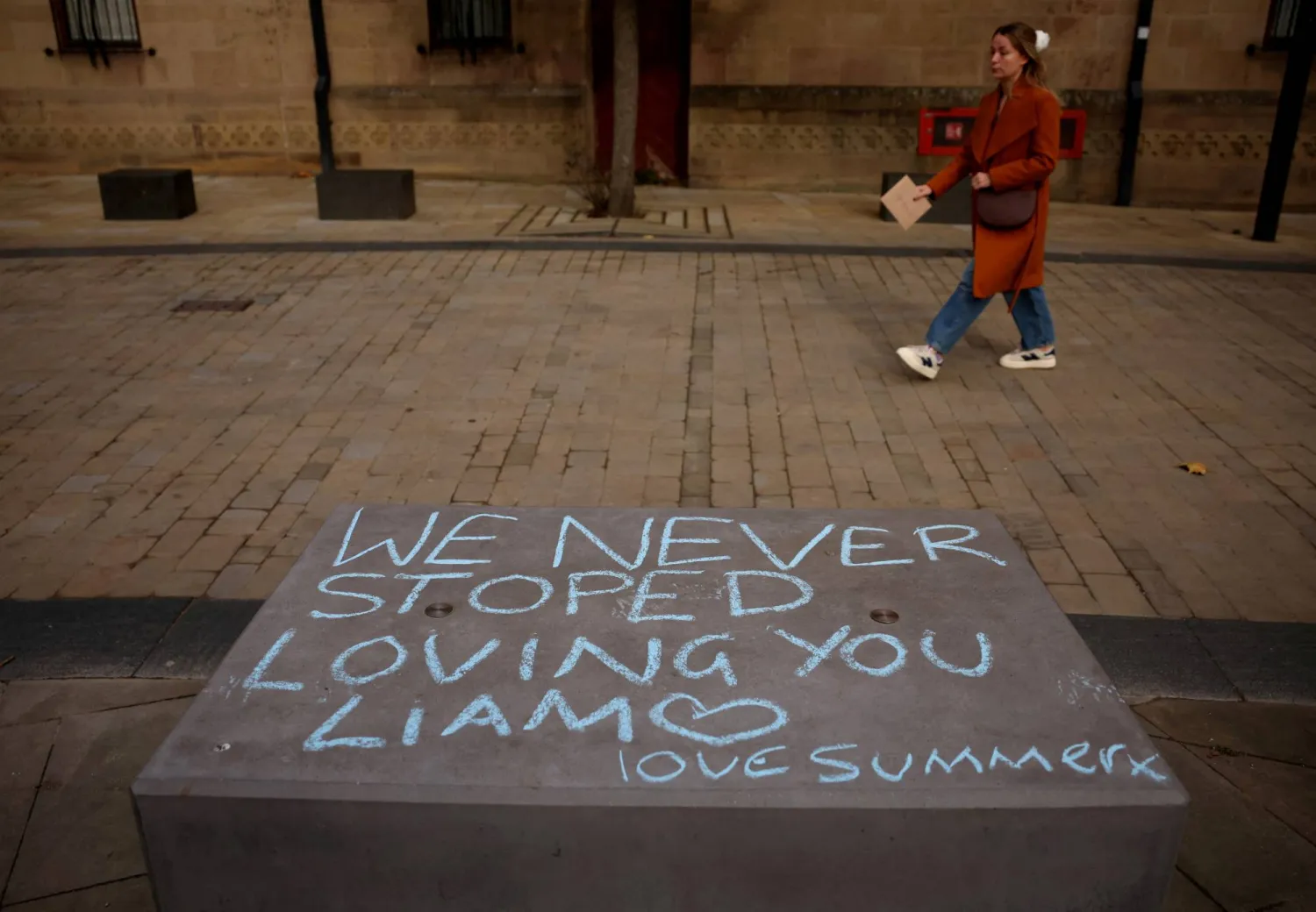Three people have been charged in connection with the death of Liam Payne, a former member of musical group One Direction who died after falling from the balcony of his hotel room in Buenos Aires last month, Argentine prosecutors said Thursday.
Prosecutor Andrés Madrea charged the three suspects, whose identities were not revealed, with the crimes of “abandonment of a person followed by death” and “supplying and facilitating the use of narcotics,” the prosecutor’s office said. Madrea also requested their arrest to judge Laura Bruniard, who ruled the three cannot leave the country, The Associated Press reported.
Payne fell from his room's balcony on the third floor of his hotel in the upscale neighborhood of Palermo, in the Argentine capital. His autopsy said he died from multiple injuries and external bleeding.
Prosecutors also said that Payne’s toxicological exams showed that his body had "traces of alcohol, cocaine and a prescribed antidepressant” in the moments before his death.
Investigators said hours after Payne’s death that he was by himself when he fell. But the prosecutors' office said Thursday that one of the people charged was often with the singer during his time in Buenos Aires. The second is a hotel staffer who allegedly gave Payne cocaine during his stay between Oct. 13 and 16. And the third is a drug dealer.
The charges in Payne’s case bear some resemblance to the US cases stemming from the death of “Friends” star Matthew Perry a year ago. The actor’s personal assistant and a longtime friend are among those charged with helping supply him with ketamine in the final months of his life, leading up to his overdose on the anesthetic.
Three young men were similarly charged in the opioid-overdose death of rapper Mac Miller in 2018.
Local authorities gathered, among other pieces of evidence, Payne's cell phone records, material for forensics and testimonies. They are yet to unlock the singer’s personal computer – which is damaged – and other devices that were seized.
Payne’s autopsy showed his injuries were neither caused by self-harm nor by physical intervention of others. The document also said that he did not have the reflex of protecting himself in the fall, which suggests he might have been unconscious.
Prosecutors in Argentina also ruled out the chances of Payne committing suicide.
One Direction was among the most successful boy bands of recent times. It announced an indefinite hiatus in 2016 and Payne — like his former bandmates Zayn Malik, Harry Styles, Niall Horan, and Louis Tomlinson — pursued a solo career.
The singer had posted on his Snapchat account that he traveled to Argentina to attend Horan’s concert in Buenos Aires on Oct. 2. He shared videos of himself dancing with his girlfriend, American influencer Kate Cassidy, and singing along in the stands. Cassidy had left Argentina after the show, but Payne stayed behind.
Argentine Prosecutors Charge 3 People Linked to Death of Liam Payne

FILE PHOTO: A woman passes by a message written as a tribute to former One Direction singer Liam Payne, who was found dead after he fell from a third-floor hotel room balcony in Buenos Aires, in Manchester, Britain, October 21, 2024. REUTERS/Phil Noble/File Photo

Argentine Prosecutors Charge 3 People Linked to Death of Liam Payne

FILE PHOTO: A woman passes by a message written as a tribute to former One Direction singer Liam Payne, who was found dead after he fell from a third-floor hotel room balcony in Buenos Aires, in Manchester, Britain, October 21, 2024. REUTERS/Phil Noble/File Photo
لم تشترك بعد
انشئ حساباً خاصاً بك لتحصل على أخبار مخصصة لك ولتتمتع بخاصية حفظ المقالات وتتلقى نشراتنا البريدية المتنوعة







